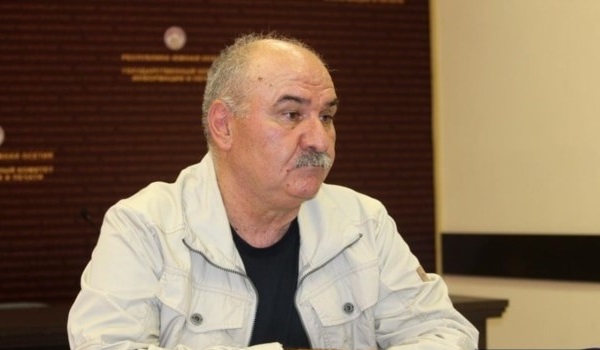Rewriting history in South Ossetia
In the pro-Russian breakaway republic of Georgia proclaimed in 2008, there is a big debate about the need to write new textbooks on the contemporary history of the region. Former parliament speaker Kociev: "How can you rewrite it in the midst of a fist and knife fight?".
Tskhinvali (AsiaNews) - In Tskhinvali, the capital of the pro-Russian Georgian separatist republic of South Ossetia, a great debate is underway on the need to write new textbooks, and new more in-depth research, on the contemporary history of the region.
The deputies of the Supreme Council also discussed it, complaining that "the new generation of Ossetians does not know the historical facts, which led to the formation of our republic".
This ignorance, according to some participants, "opens up the possibility of spreading all kinds of insinuations and distortions of real events, which everyone feels entitled to comment on in their own way", also compromising the opinion and memory relating to the personalities who have made a decisive contribution to the cause of independence.
This is the post-Soviet period from 1998 to 2008, when the conflict between Russia and Georgia led to the proclamation of the autonomous republic of South Ossetia.
The former speaker of the parliament, the leader of the local communist party Stanislav Kočiev, believes that the problem does not lie in the fact that most of the protagonists of those years are still alive, but that the same protagonists continue to offer different versions and interpretations of the facts, fueling the conflict within the country.
He opposes the “new textbooks,” which would be written by those who intend to take advantage of them, because everyone believes they are the first and only hero of our history… how can history be written during a fist and knife fight?”.
To avoid losing the memory of significant facts and people, according to Kočiev, now everyone should "dedicate themselves to writing their own memoirs", which in the future will be studied by historians and neutral and competent researchers. "It is the historians who must write history, and those who are protagonists will remain in this history, with the positive or negative sign they deserved".
For the popular Ossetian blogger Alik Pukhat, post-Soviet history must instead be studied now, setting dates and events that would otherwise be forgotten, but before sitting down to write manuals, it is necessary to openly discuss the last twenty years, rediscovering links with previous history.
“You can start afresh from the figure of Abdul Bekir Tautiev, the first head of South Ossetia, a descendant of the Ossetian mukhadzhiry, who believed in the revolution and returned to Tskhinvali from Turkey via Baku,” recalls Pukhat, when North and South Ossetia united to form a single Soviet republic.
Tautiev was harshly repressed by Stalin, up to being shot, but "neither on the internet nor in books can you find information about him, he was erased from history", observes the blogger.
Before 1989, in his opinion, 1920 and 1937 should be remembered, years in which "the genocide of the Ossetians" took place due to the Soviets, who incited the locals to revolt while making agreements with the Georgian Mensheviks, for mutual recognition and the commitment to respect the borders. It was the stage when the Bolshevik power was establishing itself in Azerbaijan, and wanted to avoid problems in the neighboring areas of the Central Caucasus.
However, these events leave many traces of resentment in the local population, both towards the Russians and towards the Georgians.
Even after Stalin's death there were waves of repression, for example when a large group of students demanding to restore the study of the Ossetian language was imprisoned in the mid-1950s; some of them spent ten years in a concentration camp.
“The Ossetians did not come out of nowhere like elves, after the end of the USSR”, says Pukhat, otherwise instead of history we would only make “neo-Soviet post-punk”. Even the deputy David Sanakoev observes that "there is much discussion, because so much has happened", with great internal and external divisions, typical of a land full of contradictions and diversity like the whole Caucasus.
Sanakoev concludes with an invitation to look ahead: "to stop arguing about the past, we must start thinking about the future together".
12/02/2016 15:14
24/10/2019 17:56
22/08/2008







.png)










